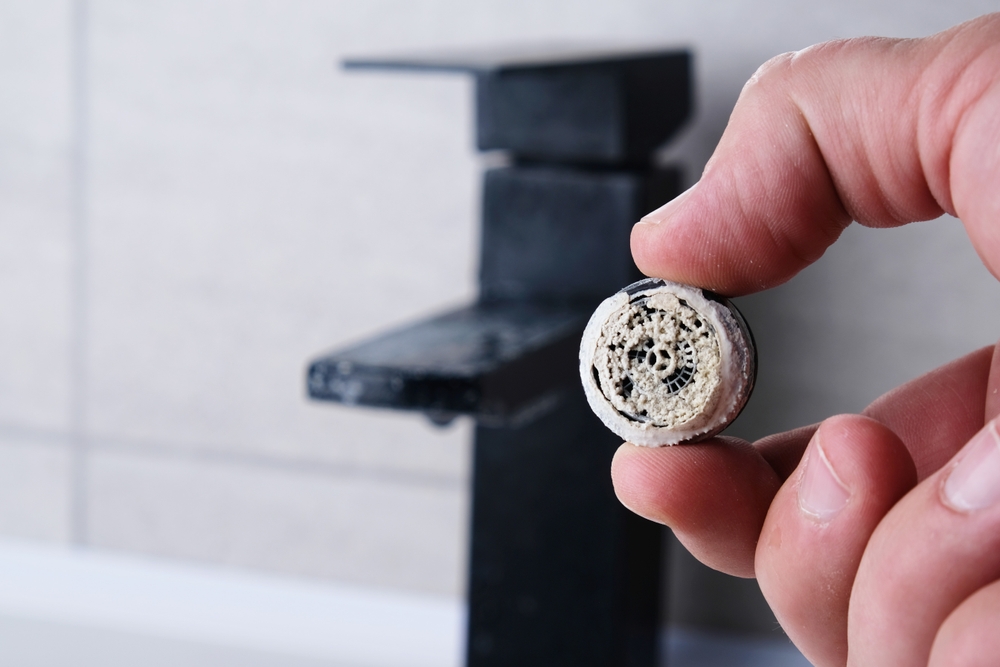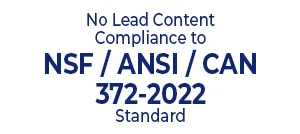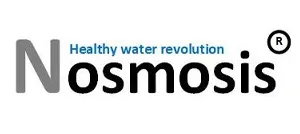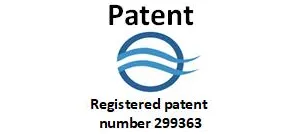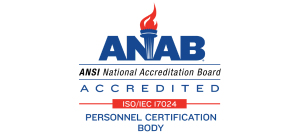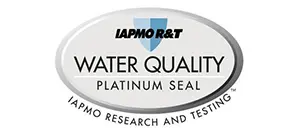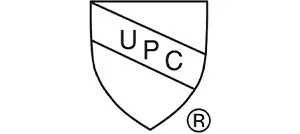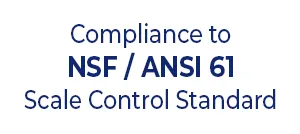Limescale is more than just an unsightly nuisance; it’s a stubborn deposit that can damage your plumbing, appliances, and even affect the taste and quality of your drinking water. Understanding what causes limescale, how to prevent it, and which solutions truly work can save you money, time, and frustration. In this comprehensive guide, we’ll break down the science behind limescale formation, explore its considerable impacts on your home and health, and offer cutting-edge strategies for effective limescale removal and prevention based on the latest research and technology.
The Science Behind Limescale Formation
What Exactly Is Limescale?
Limescale is primarily composed of calcium carbonate (CaCO₃) and sometimes magnesium carbonate (MgCO₃). This hard, chalky deposit forms when mineral-rich water evaporates or is heated, causing these dissolved minerals to precipitate and crystallize on surfaces. The whitish, greenish, or sometimes reddish-brown residue (when iron is present) is what we commonly refer to as limescale.
The Chemistry of Hard Water and Limescale
Hard water contains high concentrations of dissolved calcium and magnesium ions. When water containing calcium bicarbonate (which is soluble) is heated, it undergoes a chemical reaction that converts it to insoluble calcium carbonate, as explained by
Compound Chemistry:
Ca(HCO₃)₂ → CaCO₃ + CO₂ + H₂O
This chemical transformation explains why heating elements and hot water pipes are particularly vulnerable to limescale buildup. Recent research has shown that the process of limescale formation in turbulent pipe flows involves both turbulent diffusion and turbophoresis phenomena, making the mechanics of scale formation more complex than previously understood.
Measuring Water Hardness
Water hardness is typically measured in milligrams per liter (mg/L) or parts per million (ppm) of calcium carbonate:
- Soft water: Less than 60 mg/L
- Moderately hard: 60-120 mg/L
- Hard: 121-180 mg/L
- Very hard: Over 180 mg/L
According to the U.S. Geological Survey, regions with limestone or chalk aquifers are especially prone to hard water issues, with some areas experiencing water hardness exceeding 200 mg/L.
The Real Impact of Limescale
Energy Efficiency and Financial Consequences
Limescale buildup significantly impairs energy efficiency in water-heating appliances. Research from ETH Zurich demonstrates that even a 1mm layer of limescale on heating elements can reduce efficiency by approximately 1.5%, leading to substantially higher energy costs. For industrial settings, this inefficiency requires burning millions of additional tons of fuel annually, contributing significantly to carbon emissions.
Damage to Household Appliances and Plumbing
Limescale doesn’t just affect energy consumption—it can dramatically shorten the lifespan of your appliances:
- Water Heaters & Boilers: Scale accumulation forces these appliances to work harder and run hotter, potentially leading to premature failure.
- Kettles, Coffee Makers & Dishwashers: These kitchen appliances often show the first signs of limescale problems, with visible deposits affecting performance and taste.
- Washing Machines: Scale buildup on heating elements reduces efficiency and can damage components, leading to costly repairs.
- Plumbing Systems: Over time, pipes can become partially or completely blocked by limescale, reducing water pressure and flow. In severe cases, this necessitates pipe replacement—an expensive and disruptive procedure.
Health and Quality of Life Considerations
While calcium and magnesium minerals themselves aren’t harmful (and can even provide some health benefits), excessive limescale can:
- Affect water taste and clarity
- Make cleaning more difficult as soap reacts with hard water minerals
- Contribute to dry skin and hair problems according to Healthline
- Create an environment where bacteria can potentially thrive in plumbing fixtures
Advanced Solutions for Limescale Prevention
Cutting-Edge Water Filtration Technology
Modern water filtration has evolved dramatically, offering innovative solutions for limescale prevention that go far beyond traditional methods:
1. The LotusDY Water Filtration System with No-Smosis Technology
The LotusDy system represents a breakthrough in water treatment technology, offering a fundamentally different approach from conventional water softeners or standard filtration systems. Its patented No-Smosis technology provides unparalleled control over mineral content in water, allowing you to:
- Adjust Total Dissolved Solids (TDS) to optimal levels, significantly reducing limescale while preserving beneficial minerals
- Maintain excellent water taste while reducing the tendency of minerals to form scale
- Minimum maintenance requirements.
- Operate without electricity or water waste, making it exceptionally eco-friendly
2. The T-18 Whole-House Protection System
For comprehensive protection against limescale throughout your entire home, the T-18 system offers:
- Complete filtration for every water outlet in your home
- Advanced mineral regulation technology that transforms how calcium behaves in your water
- Helps safeguard appliances, fixtures, and plumbing systems across the home
- Long-term, set-and-forget operation with minimal maintenance requirements
Revolutionary Anti-Scale Technologies
Recent scientific breakthroughs are changing the landscape of limescale prevention:
1. Hydrogel Microstructure Coatings
Researchers from ETH Zurich and UC Berkeley have developed an innovative polymer hydrogel coating with microscopic ridge structures that reduce limescale adhesion. This technology, inspired by shark scales, ensures limescale crystals have minimal surface contact, making them easier to flush away with normal water flow. Tests have shown up to 98% reduction in limescale crystal buildup with this approach.
2. Radio-Frequency Alternating Electric Field (RFAEF) Technology
This innovative electronic anti-fouling technology induces specific electromagnetic fields into water that alter mineral precipitation behavior. Rather than forming hard scale deposits, minerals form suspended clusters that remain in the water as a non-adherent powder. This technology works with both hard and soft water and consumes minimal energy in order to prevent scale deposits, while requiring no chemicals.
3. Nanotechnology-Enhanced Materials
Advanced filtration materials incorporating nanotechnology can now capture particles as small as 10 micrometers, helping reduce the formation of initial nucleation sites necessary for limescale formation. Silver ion-releasing nanoparticles offer additional antimicrobial properties, addressing both scale and potential bacterial growth simultaneously.
Traditional Water Softening Methods: Benefits and Drawbacks
Salt-Based Ion Exchange Systems
While effective for limescale reduction, traditional salt-based water softeners have significant drawbacks:
Pros:
- Effective at removing calcium and magnesium ions
- Well-established technology with predictable results
- Can improve soap effectiveness and reduce spotting
Cons:
- Environmental Impact: Discharge salt-laden wastewater that can harm aquatic ecosystems and soil health according to the EPA
- Health Concerns: Replace beneficial minerals with sodium, potentially problematic for those with heart or blood pressure issues as noted by the EPA
- Maintenance Requirements: Need regular salt replenishment and periodic servicing
- Water Waste: Many systems waste significant amounts of water during regeneration cycles
- Regulatory Issues: Increasingly restricted or banned in environmentally sensitive regions
Electromagnetic and Magnetic Water Conditioners
These alternative technologies attempt to alter the crystallization behavior of minerals without filtering them out:
Pros:
- No chemicals or salt required
- No water waste
- Minimal maintenance
Cons:
- Variable effectiveness depending on water chemistry
- Limited scientific consensus on long-term efficacy
- May not work well with extremely hard water
Practical Maintenance Strategies
While advanced filtration technologies offer the most comprehensive solution, these supplementary approaches can help manage existing limescale:
Natural Descaling Methods
- Vinegar Solution: A 50% white vinegar solution effectively dissolves calcium carbonate. Particularly useful for kettles and removable showerheads.
- Citric Acid: A food-safe alternative to vinegar that works through similar acid-base neutralization.
- Regular Cleaning Routines: Frequent wiping of fixtures helps reduce scale buildup from becoming tenacious.
Commercial Descaling Products
- Specialized Descalers: Products formulated for specific appliances (coffee machines, washing machines) can be effective but choose environmentally friendly options.
- Enzymatic Cleaners: Newer, more environmentally friendly descaling agents use enzymes rather than harsh chemicals.
Making the Right Choice for Your Home
When selecting a limescale reduction solution, consider:
- Water Hardness Level: Test your water to determine exactly how hard it is.
- Whole-House vs. Point-of-Use: Decide whether you need protection for your entire home or just specific appliances.
- Environmental Impact: Consider water waste, electricity usage, and chemical discharge.
- Maintenance Requirements: Factor in the ongoing attention each system needs.
- Long-Term Cost: Look beyond initial price to include operating costs and potential savings from protected appliances.
For most homeowners, advanced systems like the LotusDy and T-18 offer the ideal balance of effectiveness, eco-friendliness, and low maintenance. These technologies provide comprehensive protection while avoiding the drawbacks of traditional water softeners.
Conclusion: A Scale-Free Future
Limescale may be persistent, but with today’s advanced reduction technologies, it’s entirely manageable. By understanding the science behind limescale formation and implementing the right solution for your home, you can enjoy:
- Extended appliance lifespan
- Lower energy bills
- Reduced maintenance needs
- Better-tasting water
- Easier cleaning
Modern water filtration systems like the LotusDy and T-18, combined with cutting-edge anti-scale technologies, offer unprecedented protection against limescale without compromising water quality or environmental responsibility. Invest in these solutions today to enjoy the benefits of scale-free water throughout your home for years to come.
Limescale Prevention FAQs
How quickly can I expect to see results after installing a water filtration system?
For new installations in homes without existing scale, protection is immediate. For homes with existing scale, you’ll typically see gradual improvement over 2-3 months as the non-scale-forming water slowly dissolves old deposits.
Will reducing limescale buildup improve my water pressure?
Yes, if reduced pressure is caused by scale-narrowed pipes. Many homeowners report significant pressure improvements after addressing serious limescale issues.
Are water softeners better than physical water conditioners?
Softeners completely remove hardness minerals but have environmental drawbacks and ongoing costs. Modern conditioners like the LotusDY and the T-18 offer more environmentally friendly operation without removing beneficial minerals.
Can limescale cause permanent damage to appliances?
Yes, severe limescale buildup can cause irreversible damage to heating elements, valves, and internal mechanisms of appliances, particularly in water heaters and washing machines
Is limescale harmful to health?
The minerals in limescale (calcium and magnesium) aren’t harmful and may even provide health benefits. However, heavy scale buildup in pipes and fixtures can potentially harbor bacteria.
How often should I descale my coffee machine and kettle?
In hard water areas without filtration, descaling every 1-3 months is recommended. With proper water filtration, this frequency can be significantly reduced or minimized.
